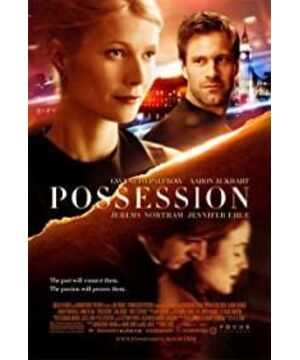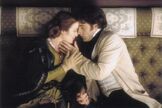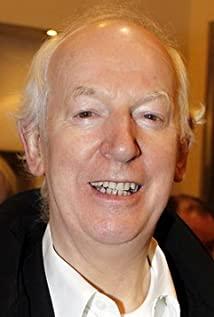Both Christabel and Maud are described in a somehow negative manner when they first appeared in the story. Roland describes the photo of Christabel as “no clear impression of anyone in particular; it was generic Victorian lady, specific shy poetess” (Byatt 44) Similarly , Maud is described as a very ordinary figure. “At first he did not identify Maud Bailey, and he himself was not in any way remarkable” (44). Thus, it can be clearly seen that both Christable and Maud were not considered stunning based on how they looked. Roland even has the impression that Maud “smelled of something ferny and sharp. Roland didn't like her voice” (44). This shows that most people in the society didn't appreciate women's beauty at first sight .
Byatt makes lots of hints and metaphor regarding the fact that people didn't realize the talent and importance of women. Maud Bailey's hair is blonde and metallic, a gold that might have existed before the discovery of precious metal: As she unbinds her mane " Roland saw the light rush towards it and glitter on it, the whirling mass, and Maud inside it saw a sea of gold lines, waving" (296). This represents Maud's stunning beauty and talent; however, She wears it covered with a scarf , symbolic of repressed Victorian sexuality. Although Christabel's hair color (like Maud's hair and the scintillating waters of the fountain) is metamorphic in hue, we have seen that it contains pale loops of silver-gold (301). Gold – the color of charm , confidence,and power linked two women together in reflecting an essential element of their feminine nature—fertility, confident and attracting.
"Mine the bright earth
Mine the corn
Mine the gold throne
To which you're born
Lie in my lap
Tumbled with flowers"
This is the song of the gold lady who wears a "queenly crown of gold, a filigree turret of lambent sunny gleams and glistering wires above crisping gold curls as heavy with riches as the golden fleece itself" (169). Based upon these parallels, we can conclude that in Possession, women's wealth — their power and energy — lies in their hair. Even though Christabel's and Maud's beauty and power is not recognized, their natural female characters still exist and shine just like the sparkling gold lady.
The connection between Maud and Christabel serves also to connect the past to the present, the Victorian to the Post-modern. Feminism is an important aspect in each time period of the novel. Maud is a modern feminist, attempting to balance her identity as a woman with her identity as an academic scholar, and Christabel is trying to overcome her femininity by living as a recluse with another woman before she met RH Ash. Similarly, Maud is a withdrawn person, wary of men, and distrustful. Christabel is doing what many women of her time were doing, that is, struggling for masculine freedom in a world that was very limited for a woman. Maud is doing what many women today are attempting to do, that is, trying to reconcile and accept her femininity in an academic, typically male, environment.Byatt plays up this feminist view of literature and society by choosing to base Christabel's poetry on the strongly feminist poetry. She and Maud are living the liberated version – living on their own, being away from the secular society. These all indicate the ways that women fight against the social pressures and choose their own liberate styles to live.
Not surprisingly, the light that gold emits cannot be covered up. Eventually, the free soul broke out and the courage pursuing liberty and love beat the fear of being different from others. Christabel and Maud both changed, as they could not reserve their true feelings anymore. In Victorian tradition, it was the man who 'owned' the woman, his wife. Yet in this modern Victorian work, that becomes twisted. When Ash attempts to 'claim' Christabel on page 308 by holding her and making love to her , the act of possession is switched around. He is trying figuratively to grasp her, and 'she was liquid moving through his grasping fingers, as though she was waves of the sea rising all round him.' He tries to take her all in, to know her, and her womanhood eludes him, as personality always will. Byatt's message seems to be that a personality cannot be taken or possessed by someone else, that individuality always remains, even in Victorian situations of female oppression and domination by males. The same love story that defines Christabel and Ash in the 1860's also describes Roland and Maud in the 1980's. Roland gradually changed his impression about Maud and found her extremely charming as a serious scholar and a beautiful independent woman. As two hearts got closer and closer, Maud finally chose to be her true self. She told Roland about her relationship with Fergus, and the reason why she reserved beauty. Then she was convinced to uncover her hair. “The segments of the plaits were like streaked and polished oval stones, celandine yellow, straw-yellow, silvery yellow, glossy with constricted life.Roland was moved—not exactly with desire, but with an obscure emotion that was partly pity, for the rigorous constriction all that mass had undergone, to be so structured into repeating patterns. If he closed his eyes and squinted, the head against the sea was crowned with knobby horns.” (291) This was how Roland felt when he saw Maud's hair. The incomparable stunning beauty shocked Roland. “Life is so short,” said Roland. “It has a right to breathe.”(291) The courage and desire for love and freedom made them decide to give their love the right to breathe.” (291) This was how Roland felt when he saw Maud's hair. The incomparable stunning beauty shocked Roland. “Life is so short,” said Roland. “It has a right to breathe.”(291) The courage and desire for love and freedom made them decide to give their love the right to breathe.” (291) This was how Roland felt when he saw Maud's hair. The incomparable stunning beauty shocked Roland. “Life is so short,” said Roland. “It has a right to breathe.”(291) The courage and desire for love and freedom made them decide to give their love the right to breathe.
Through the two love stories, sexuality is also discussed. On page 6, there is a passage on RH Ash's poem representing Proserpina, an ideal Greek woman, as 'gold-skinned in the gloom..grain golden… bound with golden links.' This is an example of idealized fertility and sexuality in Victorian women. It represents sexuality as something that can be conquered and possessed, like gold or grain. The suppression of sexuality in the Victorian era is a theme throughout the book, in both time periods, as is the sexual freedom that both couples eventually reach. The sexuality in Victorian society can be traced in Possession.
Byatt successfully displays the change of the roles of women through out the history by shifting from the 1860's to the present. The romances are so similar that it is often difficult to tell which couple Byatt is writing about in any given situation. The way this romantic narrative fits both couples and time periods seems to suggest that not so much has changed, and romance from one time to another is not so different as we thought. The characters mix the old and the new; Maud wears a brooch once belonging to Christabel, and another Ash scholar, Mortimer Cropper, carries Ash's pocket watch. In the end of the novel, the last love letter written by Christabel enables Maud to finally enjoy the value of love in the present, and give her trust to Roland.The cyclical time frame of the novel provides an interesting contrast to the normal, stifling, linear time frame of typical literature and everyday life.
Possession, a novel with lots of feminism color, does a good job in portraying two female characters from different times to call for the respect and attention for women from the society. Christabel and Maud are two respectable females who set an example for women to be who they want to be and gain respect and love they deserve.
View more about Possession reviews











